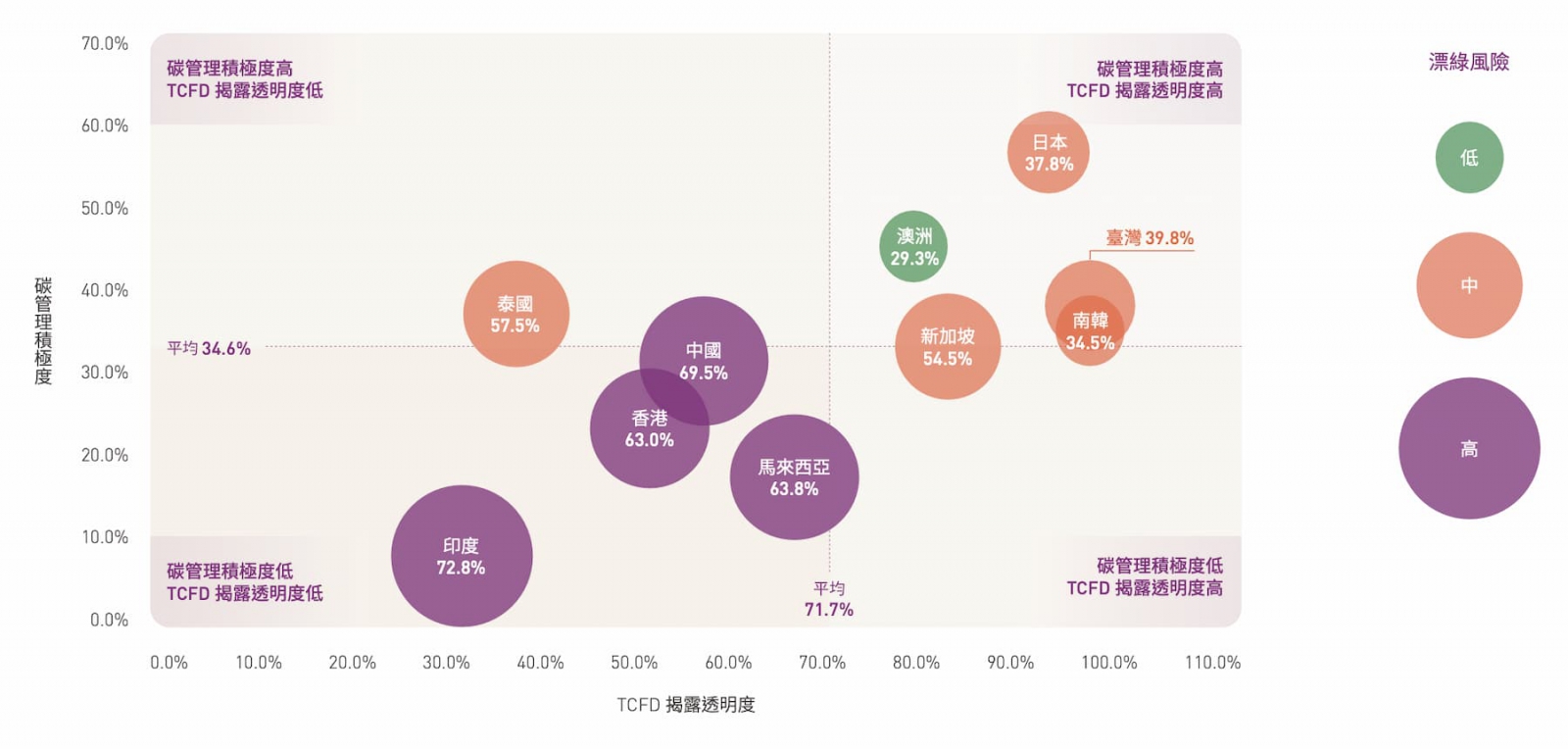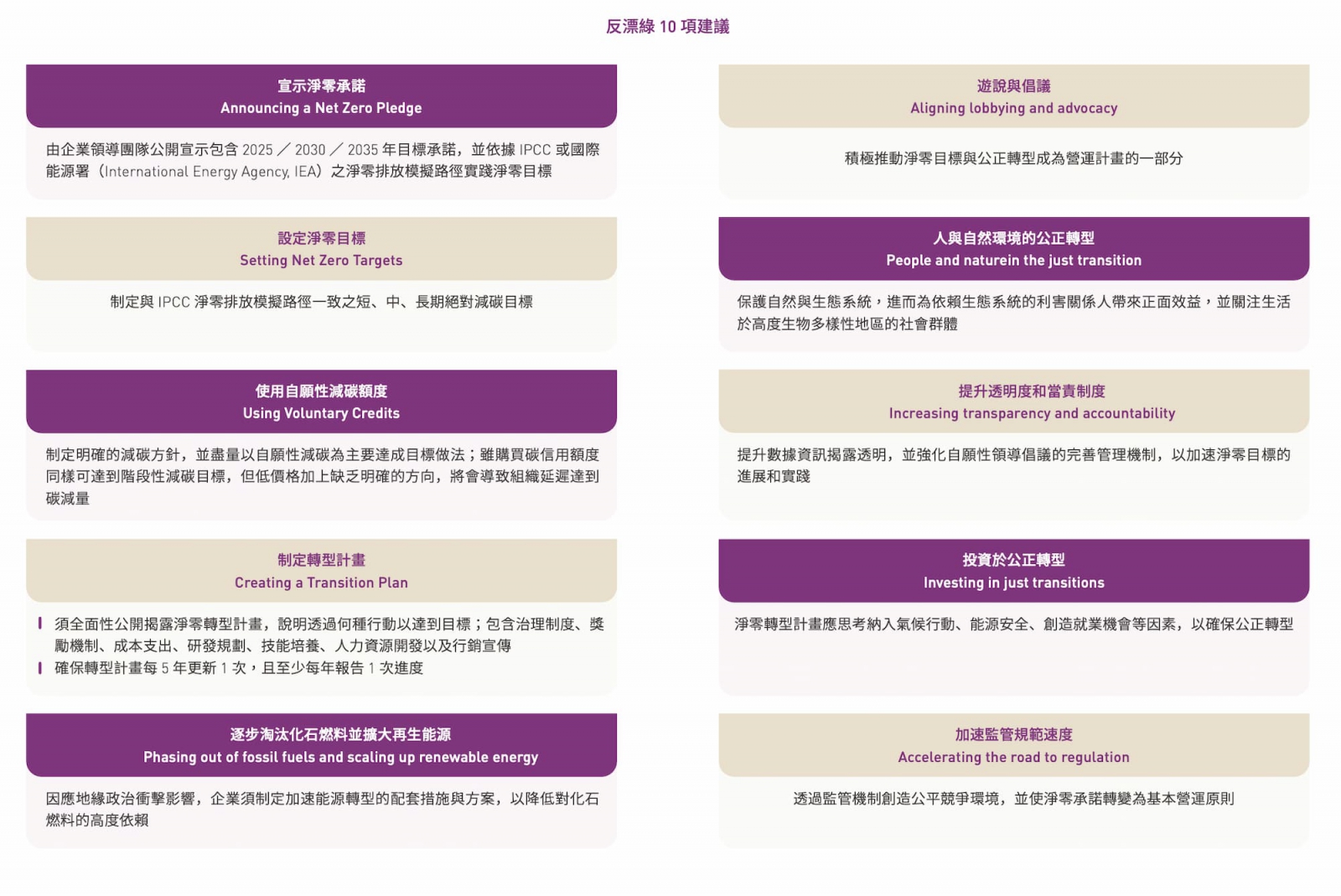.jpg)
CSRone's Vice President of Operations Tino Chen announces this year's findings. (Photo: Hsu Tsu-lin)
56% of Asia-Pacific companies have not included Scope 3 emissions reduction in their net-zero goals, according to Taiwanese CSR think tank CSRone’s 2024 Taiwan and Asia-Pacific Sustainability Report Status and Trends report released on March 29.
The survey analyzed over a thousand sustainability reports from Taiwan and corporate sustainability practices in ten Asia-Pacific countries in 2023, with Malaysia, India, China, and Hong Kong identified as having a high greenwashing risk and suggested prioritizing information disclosure and actions to align with the direction of global sustainable development.
Taiwan, South Korea, Japan top ESG performers in Asia-Pacific region
According to CSRone's Vice President of Operations Tino Chen (陳厚儒), the top three performing countries this year are Taiwan (71.3%), South Korea (65.6%), and Japan (63.8%), where companies demonstrated better management and communication on ESG issues, while Malaysia (51.4%), China (51.3%), and India (44.0%) were less transparent in disclosing key aspects and therefore rank at the bottom.
Chen said that the number of sustainability reports submitted by Taiwanese companies this year exceeded 1,000 for the first time, with over 40% setting net-zero targets, 86% identifying climate risks, and nearly 90% disclosing greenhouse gas (GHG) inventory information.
The financial indicators such as earnings per share (EPS) and return on equity (ROE) of companies publishing sustainability reports have outperformed the market for nine consecutive years, he added.
.jpg)
Chen said CSRone has been tracking corporate performance on sustainability in ten countries across the Asia-Pacific region, and this year, Taiwan again topped the list in terms of disclosure ratings, while Japan saw the largest increase in performance and Malaysia the largest decline. (Photo: Hsu Tsu-lin)
Lack of Scope 3 targets in Asia-Pacific enterprises
The survey shows that some governments in the Asia-Pacific region, such as South Korea, Australia, and Taiwan, have incorporated net-zero emission targets into law, but only Hong Kong and Australia have full climate management plans, specific milestones, and actions.
Notably, with the era of value chain decarbonization, as many as 56% of enterprises have yet to include Scope 3 emissions in their net-zero targets.
Many Chinese and Indian companies have also been found lacking in net-zero and GHG inventory targets, with only 11.1% of Indian companies setting Scope 1 and 2 emissions targets for achieving net zero.
While more companies in South Korea, Malaysia, and Australia have set Scope 1 and 2 targets, only a few have made Scope 3 information publicly available. Thailand is the best performer in this regard, with "highly established net-zero targets and inclusion in the value chain GHG inventory targets."
High risk of greenwashing in India, Malaysia, China, Hong Kong
CSRone assessed the potential risks of greenwashing for Asia-Pacific companies promoting net-zero goals, adopting the ten anti-greenwashing suggestions based on the carbon management initiative and the Task Force on Climate-related Financial Disclosures (TCFD) for analysis.


(Source: 2024 Taiwan and Asia-Pacific Sustainability Report Status and Trends report)
The results indicate that the average performance of each country and region is 34.6% for carbon management initiative and 71.7% for TCFD transparency.
Of particular concern is that only Australia is categorized as having a "low greenwashing risk," while Japan, Taiwan, and South Korea are labeled as having a "medium greenwashing risk" due to the lack of explanations in areas of "use of voluntary carbon credits," "lobbying and advocacy," and "people and nature in a just transition."
China, Hong Kong, Malaysia, and India are among the countries with "low carbon management initiative and low TCFD disclosure transparency scores" and are categorized as having a "high greenwashing risk," which CSRone suggests integrating target commitments, disclosures, and actions to respond more proactively to the direction of global sustainable development.
Cheng Chung-kai (鄭仲凱), technical director of BSI Taiwan, pointed out in a speech that there has been an increasing number of international environmental lawsuits against corporates in recent years, such as KLM and Nike.
He emphasized that companies should fully disclose sustainability opportunities and risks through due diligence, and be extra careful when using terminology, preferably from ISO standards, to ensure that the content of the sustainability report is less susceptible to challenge.
.jpg)
CSRone invited experts in the field of sustainability to share their views. From left to right: Chen Chien-you (陳建佑), director of CSRone; Wen Li-chi (溫麗琪), partner of ERM; Yeh Hui-ching (葉惠青), head of carbontech and management group at YFY; Cheng Chung-kai, technical director of BSI Taiwan; and Peter Paul van de Wijs, chief policy officer of GRI, participated remotely. (Photo: Hsu Tsu-lin)



